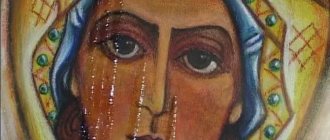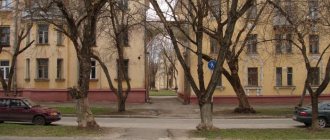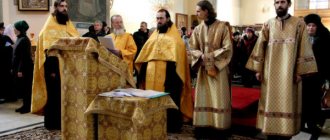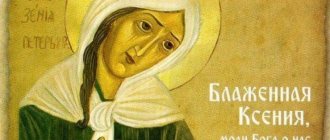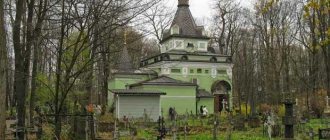The path to the monastery
In the world, Pasha Sarovskaya bore the name Irina and was the daughter of serfs. When she turned seventeen, the gentlemen forcibly married her. Irina became an exemplary wife, but never took part in festivities and entertainment. But she spent a lot of time in prayer.
Then the owners sold Irina and her husband to German landowners, but in the new place Irina’s husband fell ill with consumption and soon died. Then another misfortune happened: something was stolen from the owners, and the blame was placed on Irina. They tortured her, they pierced her head, but she did not confess, and there was nothing to it: she really was innocent. And she ran away from her masters to Kyiv on a pilgrimage. She was put on the wanted list and returned home. However, Irina could no longer live in captivity.
Apparently, with the blessing of the Kiev-Pechersk elders, she chose the path of the holy fool and ran away again. At first she ran around the village like crazy, and later she went into the Sarov forests. A brochure published in 1904 and dedicated to Pasha says that the Monk Seraphim of Sarov himself blessed her to wander.
For about thirty years, Pasha lived in the thicket of the forest, where she discovered the gift of insight. They began to turn to her for advice, asking for prayers... Several times she was attacked by dashing people, hoping to rob her. No money was found, but they were severely injured.
Pasha Sarovskaya. New archival materials for the life of Blessed Paraskeva of Diveyevo
Blessed Paraskeva of Diveyevo
September 22 / October 5, 2015 marked the 100th anniversary of the death of Christ for the sake of the holy fool Paraskeva Diveevskaya. Despite the wide popularity of Blessed Paraskeva, very little documentary evidence has been preserved about her. However, several years ago, priest Georgy Pavlovich, conducting research work in the library of the St. Panteleimon Monastery on Athos, unexpectedly discovered letters written by the cell attendant of Blessed Paraskeva, novice Pelageya, to an unidentified person (first in 1913, called Konstantin Andreevich, and in 1915–1916 years by Father Seraphim). These letters are being published for the first time.
Until now, the main sources of information about Pasha of Sarov were considered to be the “Chronicle of the Seraphim-Diveyevo Monastery,” written by Metropolitan Seraphim (Chichagov), and the memoirs of the nun Seraphima (Bulgakova), who had close contact with the cell attendant Blessed Evdokia (Dunya) Barskova. The letters discovered by the author of these lines, despite the fact that they are predominantly of an everyday nature, are of undoubted value as a reliable historical source that allows us to confirm many facts known from legend. They also shed light on important details, especially regarding the death of the blessed one.
Before moving directly to the letters, it is necessary to say a few words about their authors - the cell attendant who wrote on behalf of the blessed one, and her addressees. It is known from various sources that Blessed Paraskeva had several cell attendants. For many years, the eldest and most beloved of them was the nun Seraphima (in the world Anna Ivanovna Kapustina). But in 1913 she was no longer alive. From the memoirs of nun Serafima (Bulgakova), another cell attendant is known - novice Evdokia Ivanovna Barskova (1879 - after 1919). The letters below were written by novice Pelageya. There is no exact information about her. However, it can be assumed that we are talking about the novice Pelageya Fedorovna Verkhova (1871 - after 1919, from the peasants of the village of Kremenki, Ardatovsky district, Nizhny Novgorod province), who is listed in the list of sisters of 1917-1919 under No. 694 at the synodical and psalter obedience before Evdokia Barskova ( No. 695). It is known that in the house of Pasha of Sarov after her death the Psalter was read continuously, and the fact that the letters below were written by the novice Pelageya may indicate her seniority after the death of the nun Seraphim. A.P. Timofievich, who visited Diveevo and Sarov in 1926, reports about the long-term cell of Blessed Pasha, nun Cyprian (Timofievich A.P. God's People. M.: Palomnik, 1995. pp. 92–93). Unfortunately, it is not yet possible to reliably determine who we are talking about. Perhaps this is the same former novice Pelageya, whose letters are given here, who received the name Cypriana in monasticism.
As for its correspondents, it is difficult to say with precision who we are talking about in this case; one or two people are designated by secular and monastic names. However, some assumptions can be made. In the Elias Athos monastery there is a large icon of St. Seraphim of Sarov with the following inscription: “The gift of the court adviser Konstantin Andreevich Patin. October 27, 1913." This donor most likely was the author-compiler of collections, manuals and indexes of various kinds of legislation relating to the military department, K.A., popular in military circles. Patin. He served in the 1890s as a clerk in the Office of the Military Chief of the Krapivensky District of the Tula Province, and later in the same position in the Tambov Province. Among his works, the most famous are “A complete and detailed alphabetical index of orders for the military department, circulars, instructions and reviews of the General Staff and other main departments and orders, orders and circulars for all military districts for fifty-two years - from 1859 to 1911”, as well as “A textbook for students of clerk classes to familiarize them with writing, office work and military regulations.”
In relation to the topic under study, three circumstances are important: 1) the coincidence of the time of arrival on Athos of the addressee of the letter with the time indicated in the inscription on the icon (1913); 2) it was the icon of St. Seraphim of Sarov that was donated, and not any other saint; 3) K.A. Patin did not continue his capital reference book over the subsequent years (this was done by another person), which indirectly indicates his possible departure to the monastery. Although there is no hard evidence that K.A. Patin and Father Seraphim, and the lack of information about persons (or a person) with a similar name in the list of monks and novices of the Panteleimon Monastery for the period between 1913 and 1915 does not allow us to say this with certainty, the author of the study still seems most likely that the letters were addressed to one and to the same person. First of all, this is indicated by their very content. The first of them (dated March 29, 1913) speaks of receiving the blessing of the blessed one to go to Athos, and the second (dated May 30, 1913) reports this as an already accomplished fact. In addition, the very discovery of all the letters in the form of a complex, stored in the library of the monastery for a long time, also most likely indicates one source of their origin.
The letters (there are five in total) were written between March 29, 1913 and May 11, 1916, on 12 separate pages with reverse sides. The necessary explanations are given in the notes to each letter. They are printed preserving the author's spelling and punctuation. Published for the first time.
Reverend Father Seraphim, pray to God for us! Dear Konstantin Andreevich! I received your letter and the Shrine, for which I offer you my heartfelt gratitude, as well as for the books. I gave the shrine you sent, your portrait and the letter to Staritsa Praskovya Ivanovna, she was still worried about something, from which I concluded that one of your family or acquaintances was against your desire to go to Athos, I asked Praskovya Ivanovna more than once what would bless whether she wanted to go to Mount Athos, but she didn’t say anything, and was restless all the time, so I didn’t achieve anything and didn’t understand why she was all worried1. Rely on the will of God, Konstantin Andreevich, as the Lord teaches you, do so, as long as you have a sincere desire to serve the Lord God. May the Lord bless your path. Wishing you all the best from the Lord God and good health, I remain in sincere respect for you. unworthy novice of the Blessed Elder, sinful Pelageya, 1913. March 29th Seraphim-Diveevsky Monastery sacrifice your 5 rubles. received and passed it on to the Blessed Elder, she will pray for you.
Notes
1 It must be remembered that this was the height of the Athonite unrest of the “name-slavers”. Wasn’t this what the blessed woman’s anxiety was connected with?
* * *
Reverend Father Seraphim, pray to God for us! God's most beloved servant Konstantin Andreevich! Save yourself in the Lord! I received your letter, for which I express my deep gratitude to you. The blessed old lady sends you God's Blessing and motherly greetings, may the Lady Herself, the Queen of Heaven, the Supreme Abbess of Mount Athos, protect you now under her Divine Cover! May the Lord grant you to be saved and to strive spiritually in all the virtues of Christian life. When your letter was submitted, the blessed old lady was worried about something, but God knows why she’s worried, you’ll think about it on your own account, but it doesn’t turn out that way, we explain her words in our own way, but it turns out differently, and when it happens to you, you remember her words, and then only you understand them. So completely surrender, God-loving Konstantin Andreevich, may the Lord arrange your path to the will of God. Wishing you health and God's mercy, I remain with respect for you, the unworthy novice of the Blessed Elder, the sinful Pelagia. 1913 May 30 days. Seraphim-Diveevo Monastery
* * *
Reverend Father Seraphim, pray to God for us! Most honorable Father O. Seraphim! We received your respected letter, which we were glad to receive, otherwise we remembered where our ascetic is and how he lives, but now it is clear from your letter that you live, thank God. Good deed, strive - save yourself, time does not wait, and everything is approaching the end. May the Lord help you to succeed even more in your spiritual life. And don't forget us. God bless you for your memory and all your good wishes. I read your letter to Mama Praskovya Ivanovna. She sends you God's blessing and her maternal blessing, she will pray for you and tells you to knit stockings, i.e. pray. May the Lady protect you all the days of your life. Reciprocally, accept congratulations from us on the past Feast of the Nativity of Christ, the New Year, the Holy Epiphany and the upcoming Holy Pentecost, may the All-Generous Lord help you to spend these saving days in good health, salvation and wait for the Bright Resurrection of Christ. Save yourself! Yes, it is indeed difficult for your poor ascetics to live without a daily piece of bread; life is similar to the ancient desert. God help them! We in Russia have not yet experienced this. This terrible and unprecedented war brought many sorrows. There is not a single family without tears. Mama tells everyone to pray more fervently for the Emperor and the Christ-loving army. May the Merciful Lord grant victory over our enemies. With prayerful wishes for you all the best from the Lord God and health. unworthy novice Pelagia. 1915. January 4 days.
Notes
1. On July 28, 1914, Austria-Hungary declared war on Serbia, which marked the beginning of the First World War, which Russia entered on August 1.
* * *
Truly He is Risen! Beloved in the Lord and our Dear Father O. Seraphim! We received your respected letter and in it a letter from O. Archimandrite1, to whom I am sending separately. God bless you, dear Father Seraphim, for your congratulations and all your good wishes. Elder Praskovya Ivanovna also greets you on these days of Holy Pentecost2, praying for you that the Risen Life-Giver will strengthen your mental and physical strength and help you work for the Holy Monastery and your salvation. Mommy is often very... exhausted. Sometimes we ourselves are surprised, namely, that only the Grace of God reinforces her senile strength. Although with difficulty, she will still get up and spin; and if he hits someone with a stick 1-2 or 3 times4, he won’t even catch his breath. She partly talks to the portrait of the Emperor, but it is not clear anymore, she only said out loud in fasting: “Sovereign! at the end, I looked around”5 and then spoke again in a whisper. God grant that we quickly defeat this proud enemy - he caused a lot of sorrow to all of Mother Russia and others, but of course everything is done according to the will of God for our sins. In our Monastery, we also offer a daily prayer service for the Tsar and the soldiers, and on Saturdays there is a memorial service for the slain soldiers. Eternal memory to them! They are all St. martyrs and sufferers. We, too, must strive there from this temporary and short life, and most importantly, humble ourselves and love our neighbor. May the Lord help us! Yes, it’s not easy for your Father Archimandrite in such difficult times, you have to take care of everyone, only hope is in God’s mercy. Oh! How expensive everything is for you. God help you! and we have rye flour for 1 rub. 40k. and more expensive per pood. I often think about how your hermit elders gather for lunch, and probably out of humility they shed a lot of tears. Forgive me for the long-windedness. From the bottom of my heart I wish you to receive all the best from the Risen Lord, and most importantly, health and spiritual salvation. Well-wisher Your gr. village Pelagia. I ask for your holy prayers for the old woman, myself and the sisters of our monastery. 1915 April 2 days.
Notes
1 Abbot of the St. Panteleimon Monastery on Mount Athos in 1909–1940. Archimandrite Iakinf (Kuznetsov). However, we cannot exclude the possibility that we are talking about the rector of the St. Elias monastery, Archimandrite Maxim (1901 - after May 1914). Since only the Ilyinsky monastery did not participate in the events of 1912–1913, the reason why Konstantin Andreevich could have chosen it for the settlement is clear. 2 Easter in 1915 was celebrated on April 4 according to the new style. 3 The blessed one has a well-known custom of spinning and distributing yarn as a blessing as a symbol and encouragement to prayer. 4 If the blessed one was dissatisfied with something or someone, she often beat them with her stick. “During these years, many came to Sarov and Diveevo. Rasputin also came with his retinue - young ladies-in-waiting. He himself did not dare to enter Praskovya Ivanovna and stood on the porch, and when the ladies-in-waiting entered, Praskovya Ivanovna rushed after them with a stick with the words: “You deserve a stallion,” they only clicked their heels. Vyrubova also came. But then, fearing that Praskovya Ivanovna would do something again, they sent to find out what she was doing. Praskovya Ivanovna sat and tied three sticks with her belt (she had three sticks. One was called a “cane”, the other a “bulanka”, the third - I don’t remember) with the words: - Ivanovna, Ivanovna (that’s what she called herself), and how will you beat ? - Yes, on the snout, on the snout! She turned the whole palace upside down! An important maid of honor was not allowed in, saying that Praskovya Ivanovna was in a bad mood” (Memoirs of the nun Seraphima (Bulgakova) // Venerable Seraphim of Sarov and the Diveyevo Convent. M.: Otchiy Dom, 2011. P. 396). 5 In the memoirs of the nun Serafima (Bulgakova), this fact is also reported: “Before her death, she kept bowing to the ground in front of the portrait of the Emperor. When she was no longer able to do so, the cell attendants lowered her and raised her. - Why are you, Mama, praying to the Emperor like that? - Fools, he will be taller than all the kings. There were two portraits of the king: together with the Empress and he alone. But she bowed to the portrait where he was alone. She also spoke about the Tsar: “Don’t know the monk, don’t know the martyr?” (Ibid. P. 396) “Shortly before her death, Praskovya Ivanovna took down the portrait of the Emperor and kissed his feet with the words: “Darling is already at the end” (Ibid. P. 397).
* * *
Truly He is Risen! Dear Father O. Seraphim! Finally, I received news from you. God bless you for your good wishes. I wish you and I all the best, and most of all, spiritual salvation. I sent you a letter, but apparently you didn’t receive it, I don’t know whether you will receive it safely. About our dear mother, I inform you for the second time that she, our dear, by the will of God, died quietly and painlessly in 1915. Saint. 22 days. This year it has weakened, but especially since September 14. She was given unction, received Holy Communion several times and read the funeral service, after which she clearly said: “glory to God.” She spoke little. 14 Sep. the sisters all said goodbye to her, she had never allowed anyone to kiss hands before, and if she gave it to anyone, it was rare, but here she gave it to everyone, even lifted it, and patted someone by the head or hair, as if teaching. From that day on, she only ate St. some water. She looked at the Holy Icon with her eyes and said: “Daddy! Father Seraphim! take me, I’m going home,” or “take me,” and with her hand she seemed to be beckoning someone to her. Matush. Abbess1 was almost always here, because... Many times I had to disturb her, and despite her countless affairs at the Monastery, she left everything and came. The old lady used to say: “Mother, dear, sit down, sit down,” and would not calm down until she sat down next to her. It was impossible to listen to every word of the old woman without tears. When we asked her to pray for her benefactors, She said: “I will pray for everyone, for everyone.” We started crying and asked: Mom, who are you leaving us with? “on God” During the last minutes she breathed quietly, and so her Righteous soul went to the Lord at 2? hours of the day. It was hard to part with this spirit. treasure, but this path is inevitable and we firmly hope that She will not forget all her children and whoever remembers her in their great prayers at the Throne of God! She will not forget you, her child at the Throne of God. Funeral service performed. 25 Sep. Our Eminence Joachim2. (It was solemn and hard to believe that mother was gone. She is always with us in spirit.) The clergy said the funeral oration - and everyone present cried inconsolably.
During the stichera at the funeral service: Come, the last kiss, everyone said goodbye to dear mother for the last time, and for all her admirers I said goodbye to Her, just as during her life I also said goodbye to all of you. The old woman lay majestic and calm, and would never have left Her. Her body was buried at the cathedral next to the blessed Pelagia Eve. and Natasha. There is a Cross on her grave, a lamp is burning, a service. funeral services. In her cell, for 40 days, they read the psalter about the repose of her Righteous soul, and now about all her benefactors. Candles and oil are lit and funeral services are served daily. At the prayer meeting. in memory I am sending you the belt with which I last. days she was girded and held with her hands and a card. I believe that you are praying for her. I kindly ask you to notify me of receipt of the letter. I am sincerely glad for you that you live under the Protection of the Queen of Heaven. and have already gotten used to it. God bless! May the Mother of God protect you for the prayers of the old woman all the days of your life. I ask for your Holy prayers, sinner. listen. Pelagia. 1916 May 11 days. PS There are no new books about the oxbow lake yet3.
Notes
1 Abbess Alexandra (Trakovskaya). 2 Joachim (Levitic), Archbishop of Nizhny Novgorod and Arzamas in 1910–1918. 3 Separate biographies of Pasha of Sarov, in addition to those contained in the Chronicle of the Seraphim-Diveevsky Monastery, were published during her lifetime: Pasha of Sarov, the holy fool. M.: Publishing house I.D. Sytin, 1904. The holy fool Pasha of Sarov, old woman and ascetic of the Seraphim-Diveevsky convent. M., 1904. Sarov Pasha is a holy fool. St. Petersburg: Publishing house A.A. and N.I. Kholmushinykh, 1906. Pasha, Holy Fool of Sarov. Complete biography of the ascetic. Odessa: Type. E.I. Fesenko, 1909. The last biography of the blessed one was especially widely known. In 1912, the second edition was published in Odessa. According to A.S. Volzhsky (Glinka): “This book is sold everywhere here (in Diveyevo). Pasha herself blesses it - from her hands they give a book to the novice caring for P[r]askovya Ivanovna” (Volzhsky A.S. In the monastery of St. Seraphim. M.: Put, 1914. P. 61).
Brief biography
Blessed Paraskeva Diveevskaya, better known as Pasha Sarovskaya (in the world Irina Ivanovna), was born in the village of Nikolskoye, Spassky district, Tambov province (now Torbeevsky district of the Mordovian Republic). The exact date of her birth is unknown and is estimated to have been approximately between 1795 and 1807. According to the testimony of her first biographer, Hieromartyr Seraphim (Chichagov), the author of a work entitled “Chronicle of the Seraphim-Diveevsky Monastery of the Nizhny Novgorod Province. Ardatovsky district,” Blessed Paraskeva was the daughter of Ivan and Daria, serfs of the Bulygin landowners. Besides her, the family had three more sons and two daughters.
At the age of 17, Irina was married to the peasant Fedor, with whom she lived for 15 years without having children. After this period, she and her husband were sold to the neighboring Tatar village of Surgod to German landowners of the Lutheran faith. The new owners of the future blessed one were a doctor (a doctor who does not have a completed medical education), court councilor Karl Schmiede and his wife, nee von Hanewald. It is curious that some details of the biography of the Schmide spouses make it possible to more accurately determine the date of birth of the Sarov miracle worker. "Schmied" in German means "blacksmith", or Kuznetsov, which indicates a low birth, in contrast to the noble surname of his wife. However, Karl Schmide and his descendants were included in the Third Part of the Nobility Book of the Penza Province in 1832, and later of the Tambov Province. This means that around 1832 Karl Schmiede rose to the rank of collegiate assessor, which at that time gave hereditary nobility and the right to own serfs. Karl Schmide's place of service, apparently, was in the city of Penza, where he and his wife were listed among the parishioners of the local Lutheran Evangelical Church (GATO. F. 161. Op. 1. D. 7198. 1845 L. 22). Obviously, after receiving the nobility in 1832, Shmide bought land in the village of Surgod, and they began to buy serfs into it. If we accept the chronologically accurate data from the Chichagov Chronicle about the key events in the life of the saint, then it turns out that Blessed Paraskeva was born no earlier than 1800.
Five years later, Irina’s husband died of consumption and the owners hired her as a cook and housekeeper. She categorically refused to remarry and conscientiously engaged in the master's household. But a year and a half later, canvases were stolen from landowners and suspicion fell on Irina. At the request of the gentlemen, the police brutally tortured her, but she did not admit to the theft. Later, thanks to the help of local residents, the police discovered the true culprit and the place where the stolen goods were hidden.
After the incident, Irina fled to Kyiv, where she was found among pilgrims. The fugitive was returned at the stage, but a year later she again left her previous owners. She was found again and returned to the landowners, but they did not want to accept her, and she wandered in her native places for five years until she moved to the remote Sarov forest, where she lived for about 30 years. Over the years of asceticism and foolishness, she gained wide popularity both among the monastics of the Sarov and Diveyevo monasteries, and among the local population.
After the death on January 30, 1884 (Old Style) of Blessed Pelageya Diveevskaya, Paraskeva settled forever in the Seraphim-Diveevsky Monastery, where she acquired literally all-Russian fame thanks to the gift of clairvoyance.
During the Sarov celebrations of 1903 for the canonization of St. Seraphim of Sarov, the blessed one was visited by the emperor and empress and members of the royal family. According to the Diveyevo legend, Paraskeva predicted for them the birth of a son-heir. From that time on, the veneration of the old woman by the royal family began, so that, according to the testimony of her cell attendant Evdokia Barskova, the great princes constantly came to the blessed one with questions from the sovereign.
The blessed one died on September 22, 1915 (Old Style) at three o'clock in the afternoon. She was buried behind the altar of the Trinity Cathedral of the Seraphim-Diveevsky Monastery in a brick crypt, over which a chapel was built. The funeral service for the blessed one was performed by Bishop Joachim (Levitsky) of Nizhny Novgorod. During Soviet times, the burial place of the blessed one was desecrated. When the monastery was rebuilt in 1990, the grave was restored and a cross was placed on it.
During the celebrations dedicated to the 250th anniversary of the birth of St. Seraphim of Sarov, on July 31, 2004, Blessed Paraskeva was canonized as a locally revered saint of the Nizhny Novgorod diocese, and on October 6 of the same year, the Council of Bishops of the Russian Orthodox Church established her church-wide veneration. The holy relics were found on September 20, 2004 and now rest in the Kazan Church of the Seraphim-Diveevsky Monastery. Her memory is celebrated on September 22/October 5, as well as on the day of remembrance of the Council of Diveyevo Saints on June 14/27. The house-cell where she lived was transferred to the monastery in 2004, now it houses the museum of Blessed Pasha and the history of the Diveyevo monastery.
The life of Pasha of Sarov in the monastery
In 1878, Pasha moved to the Diveyevo Monastery. She brought with her many dolls, nursed them, fed them and bathed them. During her life in the monastery, the holy fool changed several cells.
“Her last refuge was the cell at the southern monastery gate. There she had one spacious and bright room, remarkably neat, the entire wall of which was hung with large icons. In the center is a crucifix, flanked on the right by the Mother of God, on the left by the holy apostle and evangelist John the Theologian. In the same house, in the right corner from the entrance, there is a tiny cell-closet that served as Paraskeva Ivanovna’s bedroom. The blessed one’s simple wooden bed with huge pillows was rarely occupied; for the most part, dolls rested on it. And Pasha had no time to lie down, since she prayed all night long. Exhausted in the morning, the old woman lay down and dozed, but the light was just breaking, she washed, cleaned herself, tidied up, or went out for a walk to pray,” it is written in the book “For Christ’s sake, the holy fools Pelageya, Paraskeva and Maria of Diveyevo” (Series “Lives of the Diveyevo Saints”, 2015).
Paraskeva Ivanovna made sure that the sisters did not shy away from attending services; she herself could stand on her knees throughout the service.
Pasha spent a lot of time at work: knitting and spinning stockings. During these classes, she constantly recited the Jesus Prayer. Then rosaries, belts and cassocks were made from Pasha's yarn. By the way, the blessed one allegorically called the exercise in prayer knitting stockings. She often invited: “Come to us: knit stockings and collect milk mushrooms” (pray and make prostrations). Or she went to weed and water the garden - and also prayed at the same time. Then she said: “I’ve been weeding, watering, weeding everywhere!” or “No one is flying, no one is watering, I’m all working alone!”
Using the gift of foresight, Paraskeva, without waiting for the sisters to come to her for advice, approached them herself to warn them about temptations and temptations, forced them to clean more carefully and pray more diligently. She called the icon of the Mother of God “Mama behind the glass.” Reprimanding people for unseemly actions, the blessed one said: “Why are you offending Mama?” And as a sign of special veneration of the images, she put food and favorite things near the icons, and decorated them with flowers.
In the warm season, Pasha spent a lot of time in the forest or fields; traveled, taking with her a stick, which she called a staff, a sickle and a bundle with various things (there was everything there - crusts of bread, cucumbers, peas, wooden crosses, handkerchiefs, mittens with money...) and several dolls. She used her staff to scare intruders or simply dishonest people. She mowed the grass with a sickle and bowed under the guise of mowing.
With the help of dolls, Pasha Sarovskaya often explained to people who came to her for advice what awaited them. So, one day a Moscow merchant’s wife came to her with her unmarried daughter. Hoping to please the blessed one, they gave her a most luxurious doll. However, she suddenly tore her hand away from the toy and began to shove it into the girl’s mouth, furiously saying: “Eat, eat!” The guests were urgently taken out, and then it turned out that the merchant’s daughter had an abortion some time ago.
Another time, the blessed one approached the village psalm-reader and advised him to take a nurse. He was surprised, because his wife, who had recently given birth to a child, was absolutely healthy. Only soon she suddenly fell ill and died. And to one girl who came to her, she said from the doorway: “They’ve been waiting for her here, but she’s still hanging around somewhere!” .
The blessed one predicted the death of the Romanovs
Tsar Nicholas II visits Blessed Pasha of Sarov. Wall painting of the Kazan Church of the Diveyevo Monastery
At the end of the 19th century, the name of Praskovya Ivanovna was known not only among the people, but also in court circles. Many high-ranking officials, visiting the Diveyevo Monastery, considered it their duty to visit the blessed one. There is much evidence of her foresight. In 1903, during the glorification of St. Seraphim, Pasha of Sarov was visited by the royal family. And the blessed one predicted for them the imminent birth of an heir, and the death of Russia and the dynasty. After this, the king sent to her more than once for advice. And shortly before her death, the blessed one often prayed in front of his portrait, foreseeing his imminent martyrdom.
Blessed Schema-nun Paraskeva died hard and long and died on October 5 (new style) 1915. She was 120 years old. She was buried at the altar of the Trinity Cathedral of the Seraphim-Diveevsky Monastery. And in 2004, at the celebrations dedicated to the 250th anniversary of the birth of St. Seraphim of Sarov, she was glorified as a saint.
Photo nne.ru
The case of S. A. Nilus
One day the famous spiritual writer Sergei Alexandrovich Nilus came to the monastery. He really wanted to go to Pasha, but was shy. He drank tea for a long time, then finally gathered his courage and on the way decided to give her five rubles in gold. Then S. A. Nilus recalled:
“No sooner had I crossed the threshold than to my left, from behind the door on the floor, something gray, shaggy, and, it seemed to me, scary, jumped up and rushed past me like a storm to the exit with the words: “You can’t buy me for a nickel!” You’d better go and wet your throat with tea!” She was blessed. I was destroyed."
Over time, by the way, they made peace.
They also tell how a certain hieromonk came to Praskovya. The holy fool took off his hood, cross and other insignia, locked them in a box and went to bed. And ten years later, the hieromonk resigned and renounced all his vows.
One day Colonel Leonid Chichagov came to Diveevo. The blessed one looked at him from under her sleeve and said: “But the sleeves are like a priest’s!” Soon Chichagov actually took the rank. And Pasha began to ask him to persuade the sovereign to reveal the relics of St. Seraphim. Then Chichagov collected the necessary materials, compiled the “Chronicle of the Seraphim-Diveevsky Monastery” and presented the book as a gift to the Tsar. Having become familiar with this work, Nicholas II decided to visit the monastery in person.
“There are few true holy fools”
Blessed Pasha of Sarov.
Lithograph 1908. The Venerable Seraphim, who blessed her for the feat of foolishness, even when she and her husband, about whom she said: “He is a fool like me,” came to Sarov on a pilgrimage, reminded: “the true blessed ones and Christ for the sake of holy fools it happens little; most of them are wandering around Russia, spontaneously taking upon themselves this great and difficult feat, vicious people led by the enemy of humanity. But the true blessed ones are recognized by the purity and holiness of their gaze, inexplicable in words, penetrating into the heart of a person, by the way they live and, especially, by the inimitability of speech, which is the same for everyone.”
And the rector of the Suzdal Efimev Monastery, Archimandrite Seraphim (Chichagov), the author of the “Chronicle of the Seraphim-Diveevsky Monastery,” who knew Pasha of Sarov very well, recalled: “From her kind look, every person comes into inexpressible delight. Her childish, kind, bright, deep and clear eyes amaze so much that all doubt about her purity, righteousness and high feat disappears. They testify that all her oddities - allegorical conversation, severe reprimands and antics - are only an outer shell, deliberately hiding the greatest humility, meekness, love and compassion. Sometimes wearing sundresses, she, like someone who has turned into a kindly child, loves bright red colors and sometimes puts on several sundresses at once, as, for example, when she meets guests of honor or as a sign of joy and cheerfulness for the person entering her.”


